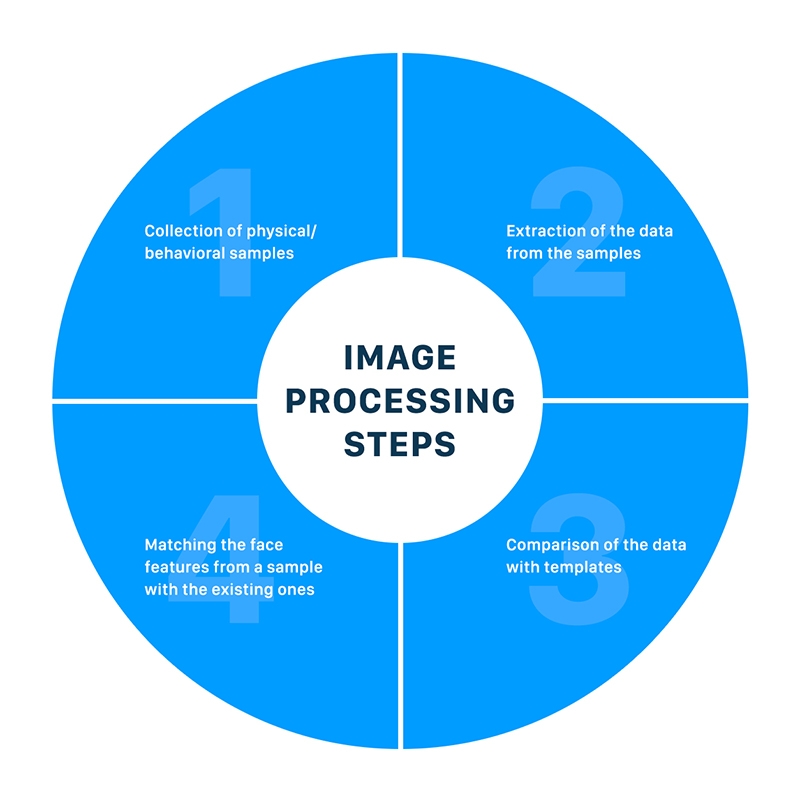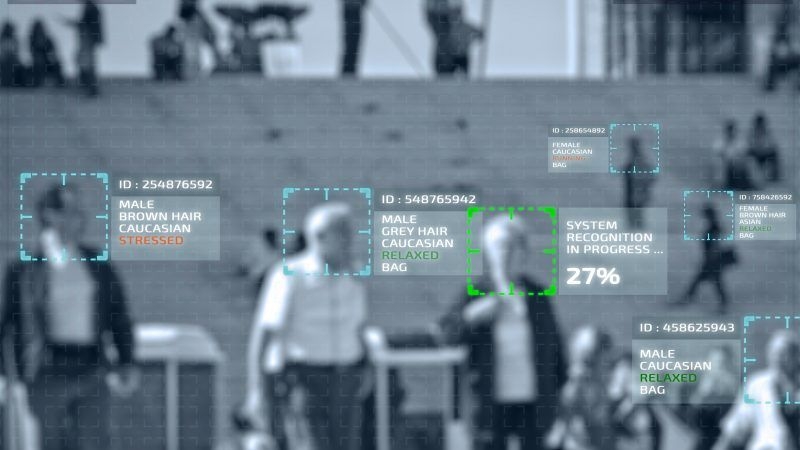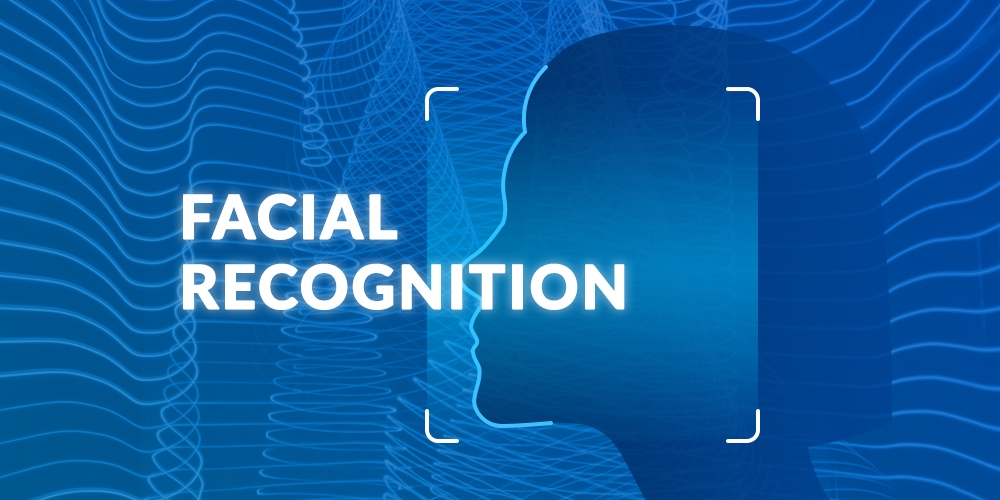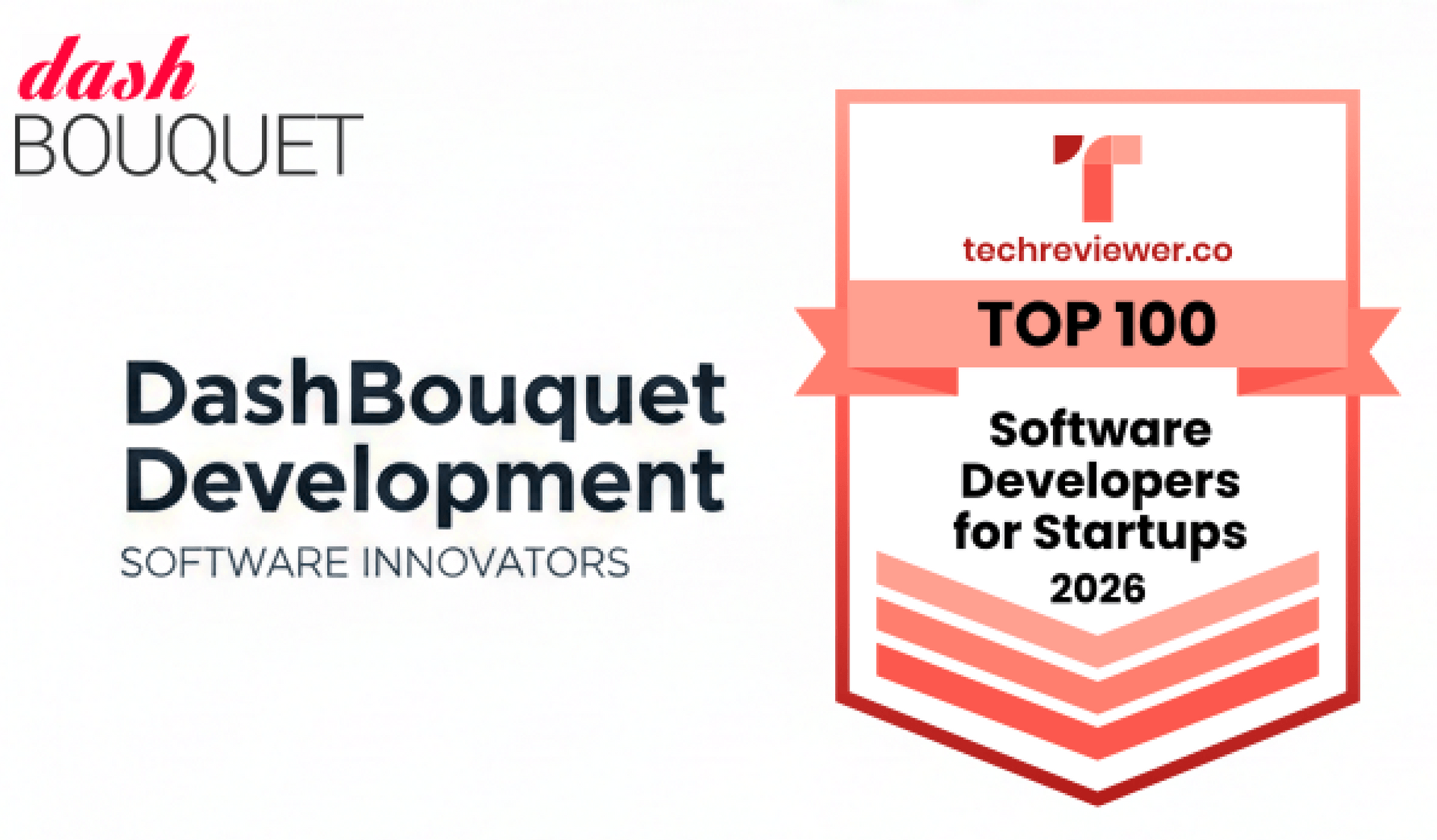A few years ago facial recognition seemed like a sci-fi fantasy but today we can unlock our phones by scanning our faces. Isn’t that wonderful?
Well, not exactly.
Despite the benefits that facial recognition brings to businesses, it also carries certain threats that are a subject of concern for both companies and users.
So what should we know and should we panic already? See the pros and cons of facial recognition below and decide yourself.
Facial recognition 101: the working principle
Facial recognition is an AI-based technology that recognizes human faces. Sounds quite easy, isn’t it?
In fact, the technology considers a number of aspects for successful face recognition: jawline length, the shape of the cheekbones, eye sockets depth, etc. All these factors help the technology “remember” who is the owner of the face.

In the heart of facial recognition technology lies the ability of the machine to “learn”. So if you want to implement the technology in your processes, make sure you have plenty of data to “feed” the machine.
Now that we are clear on the facial recognition working process, let’s see its benefits and threats.
Facial recognition benefits: better security and work automation
Aside from unlocking your smartphone, facial recognition brings other benefits to the companies.
# Enhanced security
The first thing to start with is surveillance. With the help of facial recognition, it will be easier to track down any burglars, thieves, or other trespassers.
On the governmental level, facial recognition can help identify terrorists or any other criminals with the help of the face scan only. The additional bonus is the fact that one cannot hack the technology: there is nothing to steal or change, like in case of a password, for example.
As for personal use, facial recognition can be used as a security tool for locking personal devices and for personal surveillance cameras.
# Faster processing
The process of recognizing a face takes a second or less - and this is incredibly beneficial for the companies.
In the era of constant cyber attacks and advanced hacking tools, companies need a technology that would be both secure and fast. Considering that facial recognition is almost instant, it grants a quick and efficient verification of a person. In addition, it’s hard to fool this technology so this is another bonus.
# Seamless integration
This is probably one of the biggest benefits for companies. The facial recognition technology is quite easily integrated so it’s a perfect choice. It does not require spending additional money on its integration and most facial recognition solutions are compatible with the majority of security software. A 100% win-win.
# Automation of identification
Before, security guards had to perform manual identification of a person that took too much time and did not boast high accuracy. But today, facial recognition is completely independent in the identification process and not only takes seconds but is also incredibly accurate.
The 3D facial recognition technology and the use of infrared cameras significantly boosted the level of accuracy of facial recognition and made it really hard to fool.
The threats and concerns about facial recognition
For now, facial recognition seems amazing. It’s fast, accurate, and provide outstanding results in no time. Looks like all companies should immediately integrate it with their security systems and start enjoying the benefits from its use.
But things are not so bright as they seem.
Here are the biggest concerns about the technology that stands on the way of implementing it in every company.
# Breach of privacy
With the help of this technology, the government can track down the criminals. But at the same time, it can actually track down people like you: anytime, anywhere.
The question of ethics and privacy is the most critical one. The USA government is already known to store a certain number of the citizens’ pictures without their consent and we don’t know about all cases yet.
So even though facial recognition indeed brings benefits, there is still an awful lot of work to be done before the technology is 100% used fairly and in accordance with human rights for privacy.
# Vulnerability in recognition
Facial recognition technology is indeed very accurate and no one can doubt that.
At the same time, a slight change in the camera angle or even the change of appearance will inevitably lead to an error. Bam – and your new haircut keeps you invisible for the cameras.
So this is a really serious flaw. You cannot guarantee that a person will stand still and face the camera so the results will not always be correct. And if the person changes the appearance, it would be almost impossible to recognize them.
# Massive data storage
As we said above, machine learning technology requires massive data sets to “learn” in order to deliver accurate results. And such data sets require a powerful data storage.
So if you are a small or medium-sized company you simply may not have the necessary resources to store all the data. And that might be a problem.
Summary
Facial recognition is a powerful technology but it has to be used wisely. On one hand, it brings immense advantage to the companies and end-users, helps them enhance their security and track down the trespassers.
On the other hand, it may be misused for personal benefit and lead to some serious consequences.
In our opinion, it will take at least 5 years for facial recognition to come in complete correspondence with human rights and one’s privacy. Until then, all we can do is wait and hope for the industry giants like Microsoft to make this technology more user-friendly, transparent, and secure so anyone can benefit from it.
Extra: San Francisco just banned facial-recognition technology




